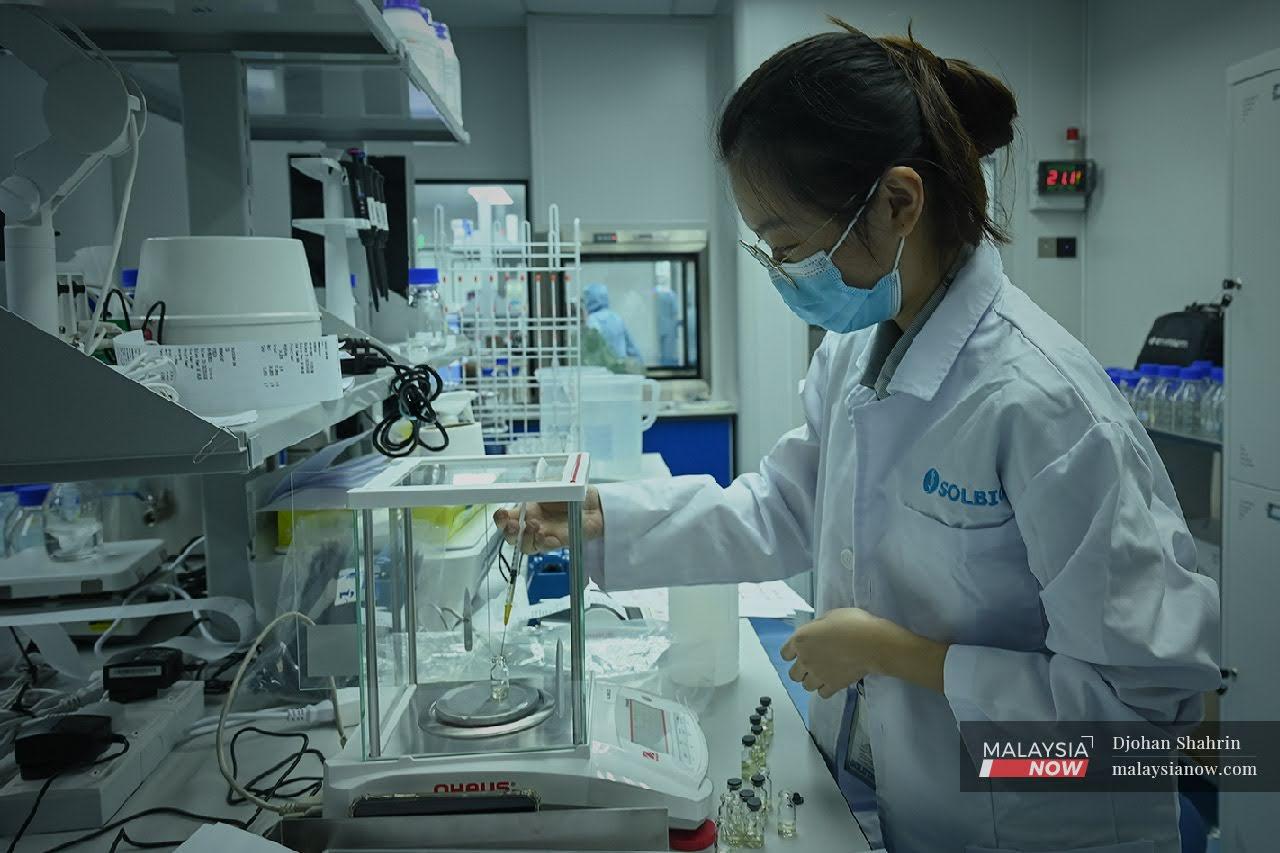Malaysia’s road to creating its first vaccine
In general, Malaysia possesses the expertise and skills needed in research and development, an expert says.
The Covid-19 pandemic which began washing over the world in late 2019 took many countries including Malaysia by surprise, pushing their healthcare systems to the brink and challenging their ability to handle a crisis of such magnitude.
It also brought to the forefront the need for a vaccine to combat the waves of infection which have seen at least five million dead since the virus was first detected.
While vaccines typically take anywhere from 10 to 15 years to manufacture, efforts were fast-tracked due the gravity of the situation and within a year, the first vaccine by Pfizer and BioNTech was rolled out and given emergency approval.
Now, nearly two years after the virus emerged in China, concerns have arisen over the access of developing countries to the much-needed jabs, with vaccine hoarding and vaccine inequality among heated topics of debate in the international arena.
In Malaysia, the National Covid-19 Immunisation Programme has relied on a combination of jabs from Pfizer, AstraZeneca, CanSino and Sinovac.
But efforts are also underway to produce locally made vaccines, with Prime Minister Ismail Sabri Yaakob saying yesterday that the country could become a hub for vaccine production.
Speaking at the launch of the National Vaccine Development Roadmap and Malaysian Genome and Vaccine Institute, Ismail said while research and development and vaccine production require heavy investment, such efforts have the potential to bring long-term returns for the country.
However, Mohd Hair Bejo who researches vaccines at Universiti Putra Malaysia (UPM) said efforts to develop a homegrown jab for Covid-19 had begun as early as March last year following discussions between him and the science, technology and innovation ministry.
He said UPM already possessed the expertise in researching, developing and commercialising poultry vaccines for diseases such as Infectious Bursal Disease, Newcastle Disease and Fowl Pox.
“Experiments using avian coronavirus or infectious bronchitis virus (IBV) as an inactivated model for a Covid-19 vaccine were carried out in collaboration with the Veterinary Research Institute (VRI) during the movement control order at the time,” he told MalaysiaNow.
“The results were very positive where a candidate for viral deactivation could provide full protection against the pathogenic challenges of IBV,” he added.
Hair was the first researcher in the country to diagnose the Gumboro virus, otherwise known as the Infectious Bursal Disease (IBD) and the Fowl Adenovirus which hit commercial poultry in 1991 and 2005.
His research contributed to the development of the MyVAC UPM93 and MyHatch IBD vaccines.
For the production of a Malaysian-made Covid-19 vaccine, UPM is collaborating with the Medical Research Institute under the health ministry which channels the allocation of research grants for Covid-19 inactivation efforts.
UPM has so far succeeded in isolating, identifying, reproducing and characterising Covid-19 using conventional and molecular techniques.
Hair said the virus deactivation process had gone smoothly and a vaccine formulation has been produced.
Next, UPM will study the safety and effectiveness of the vaccine inactivation candidate on mice before the commencement of Phase One clinical trials.
“The production protocol of this vaccine candidate is based on a preliminary study of the IBV model in early 2020,” Hair said.
“Studies show that animals injected with inactivated IBV are fully protected from the challenges of pathogenic IBV.”
Those which were not jabbed, meanwhile, had a 100% mortality rate within four to six days after being injected with pathogenic IBV.
According to the Gave vaccine alliance website, a total of 194 types of vaccine are currently in the experimental and animal testing stages.
Thirty-four vaccines are undergoing Phase One clinical trials while 45 are in Phase Two trials.
But the road to developing a vaccine does not end with successful lab trials – manufacturing is also necessary to produce the jabs on a mass scale.
Solution Biologics, a subsidiary of Solution Group Bhd which is a partner of CanSino Biologics, produces the CanSino jab using the company’s facilities.
Its CEO Mohd Nazlee Kamal said cooperation is needed across many fields in order to produce a homegrown vaccine.
“Scientists need to work with experts from various industries, especially engineers,” he told MalaysiaNow.
“Manufacturing requires a lot of engineers. We also need to scale up the process and to build up talents.”
He said Malaysia could follow the lead of CanSino in terms of establishing a global network.
He was referring to the founder of CanSino who used to work in the US and Europe before coming back to China when the adinovirus was developed with the Chinese military in Beijing.
The adinovirus for CanSino was a collaborative effort between China and Canada.
Nazlee also said his side was ready to work with the government for the provision of facilities to produce made-in-Malaysia vaccines.
Hair meanwhile said the Covid-19 inactivation project was one of the biggest challenges so far in the production of local vaccines, as it is a pilot project that could pave the way for the creation of more jabs.
“In general, the country possesses the expertise and strength needed in the research and development of vaccines,” he said.
“We also have lab facilities which can be upgraded from time to time.”
For now, though, efforts to produce a Malaysian vaccine for Covid-19 continue, with a patent to be filed by IMR, UPN and VRI.
Subscribe to our newsletter
To be updated with all the latest news and analyses daily.
